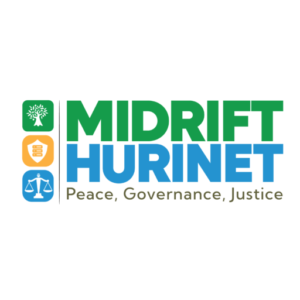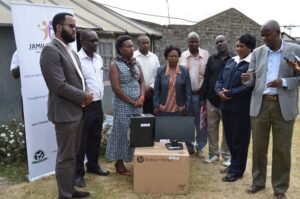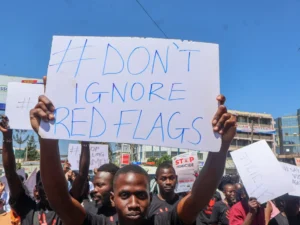Stakeholders during the launch of the new Problem Management Plus project phase in Nakuru. The forum marked the beginning of the 3-year project that seeks to improve the referral systems to targeted clients.
REHABILITATION PROGRAMME introduced a new phase of Problem Management Plus (PM+) that seeks to strengthen access to Mental Health Service provision at the community level in Nakuru county: Gilgil, Nakuru Town East, Nakuru Town West, and Naivasha sub-counties, targeting over 1000 new clients.
An Inception workshop, hosted by MIDRIFT, was held on 9th June 2021 to introduce the new project phase to key stakeholders at the different sub-counties within the intervention area. The activity brought on board representatives from the State Department for Gender, Nakuru County Government: Department of Health and the Directorate of Gender, Nakuru Level 5 Gender Violence Recovery Center, Naivasha Level 4 Youth Friendly Center, National Government Equality Commission (NGEC), Charitable Children’s Institution (CCI), Department of Children Services (DCS), supervisors with medical professional backgrounds and Community Health Volunteers.
This was a platform in which new relationships were established and developed while existing ones were nurtured with the objective of developing a working relationship to strengthen Mental Health Psychosocial Support Services (MHPSS) in the community. The new Project phase will aim at contributing to timely access to quality services and support for Gender-based Violence (GBV) survivors and families through an inter-sectoral intervention.

Psychologist Millie Rono from MIDRIFT training the stakeholders through the improved referral pathways, partnerships, and collaborations in the new project phase.
In line with the extended period of 3 years, MIDRIFT has set a work plan to bring onboard new helpers and non-specialists by capacity building them to offer Mental Health and Psychosocial Support (MHPSS) at the community level, strengthening referral networks, offer Psychological First Aid (PFA), and to continue creating awareness on Gender-based Violence (GBV) and Mental Health through community engagement forums. This is set to address the misconceptions on mental health at the community level while in the same breath, anchoring the intervention to the Health Departments at the County level for sustainability purposes.
The new project phase also seeks to provide mental health and psychosocial support (MHPSS) for clients, while encouraging help-seeking behavior among the targeted clients. This follows the realization for strengthening referral pathways from the community to Level 4 or 5 hospitals for specialized care and enhancing the culture of report sharing between relevant stakeholders at the referral pathway.
By Judy Gathura




